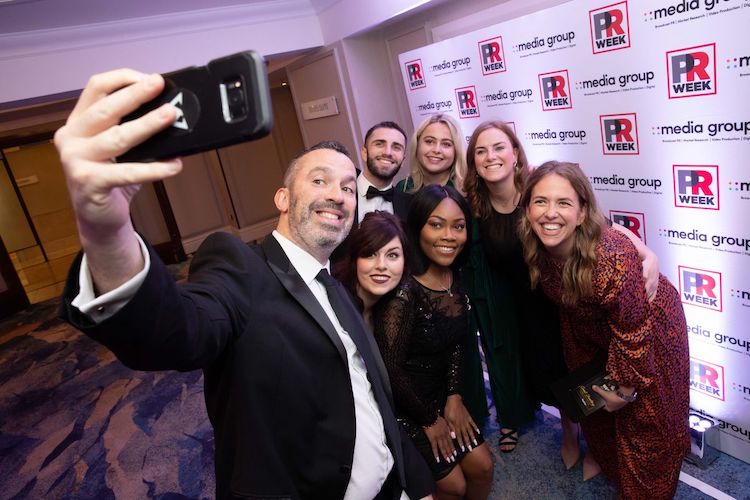
The Lowdown on PR Industry Awards
It’s PR awards season again. Time to dust off your tuxedo and dry clean your party frock.
But are PR awards worth it? The answer is yes. PR awards have plenty of advantages that go beyond a trophy on the shelf.
So what are the benefits of winning a PR award? Which ones are worth your time? And what kind of PR campaign does it take to win? Let’s take a look.
Why should you enter a PR award?
There are many reasons to enter. Winning a PR industry award won’t net you a life-changing pot of cash, but it will get you precious exposure. An award will put your name in lights and in the minds of people that matter: your target audience and the media. The financial returns will come further down the line.
A PR award will do wonders for your reputation. It will add instant credibility to your brand, both internally and externally. Internally, an award can help you attract and retain top talent. Who wouldn’t want to work for an award-winning brand? And it also shows staff that hard work breeds success and recognition.
For potential clients, a PR award is a mark of prestige. It tells the world you’re among the best in your industry. And this could be a deciding factor when it comes to choosing an agency to work with.
Read more: 6 Reasons Why Entering Awards is Good PR for your Business
How do PR awards actually work?
So, now you know why you should enter a public relations award, let’s look at how they work.
There are various types of awarding bodies but the main two to keep in mind are PR campaign awards (for the individual campaign) and PR agency awards (given to the specific agency).
Typically, the PR agency you engage with will manage the award entry and submission, and regardless of the type of award, the exposure and credibility you get from winning is the same.
Some awarding bodies, like PRmoment, PR Week and Fresh PR awards are only open to UK entrants. Others, like the SABRE Awards are international. If you’re going international, bear in mind that competition is fierce, and you’ll find yourself up against PR powerhouses such as New York, Paris, Tokyo and LA.
Other awards are a part of wider industry competitions within the marcomms (marketing communications) sector. The Drum, an international marketing, advertising, PR and communications news site, is a prestigious example.
Which awards should you enter?
There are almost as many public relations awarding bodies as there are entrants, easily hundreds across the globe. Yet there are only a select few that carry the weight and credibility to truly matter.
Let’s start with the UK specific awards.
PR Week Global Awards
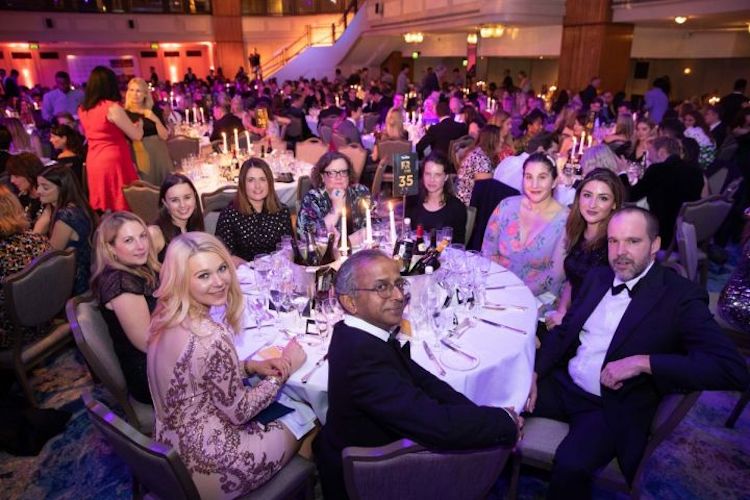
Founded in the 1990s, PR Week is one of the key sources for UK PR industry news. The PR Week awards are some of the most prestigious in the industry.
Submission for the PR Week awards takes place over the summer and they consider entries around September. And for the past decade, the event has been held at Grosvenor House Hotel in London, just before Halloween.
Notable winner: In 2019, PR Week’s Best International Campaign award went to HSBC for its ‘Flyland’ campaign.
In an attempt to engage the flying public in the UK, US, UAE and Hong Kong with HSBC, the bank turned its attention skywards with the release of an infographic and supporting PR campaign documenting findings from a study of the behaviour of the 11.9 million people around the world who are in-flight on any given day of the year.
One observation from the research stated that if Flyland was a real country, it would generate an annual GDP of US $400.5bn, which is in the same bracket as Norway on US $398.8 billion, making it the 25th richest nation on Earth.
This simple but fascinating campaign generated 158 pieces of coverage across 13 countries, and won HSBC a coveted PR Week award and a PRCA award.
Application details: www.prweekawards.com
PRCA Awards
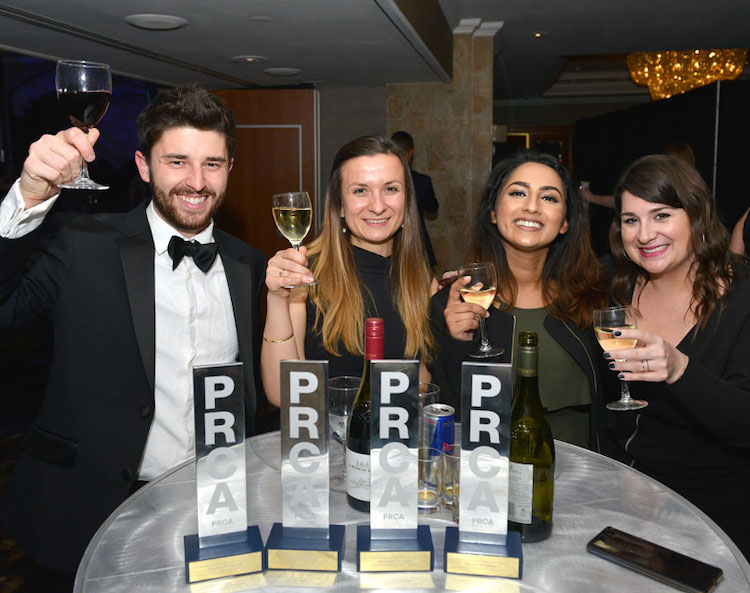
The PRCA (Public Relations and Communications Association) is one of the industry’s key trade associations. Their awards are dotted throughout the year and cover a wide range of PR categories. You’ll find Digital and Social Media PR awards in April, PR Apprentice awards in July, PR Public Affairs Awards (for lobbying) in December, and PR in the City of London and Finance awards in February.
The biggest ceremony in their calendar, and the one which gets the most attention, is the PRCA National Awards, which take place in November. This event attracts over 800 big PR industry players. The deadline for entry is July, with a nail-biting wait until November when the winners are announced.
Application details: www.prcanationalawards.com/rules-of-entry
PRmoment Awards
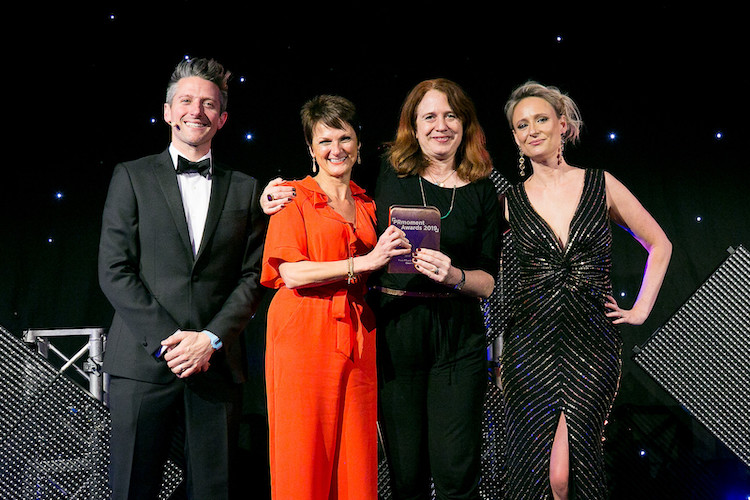
PRmoment offers online-based PR news and has a huge following. Their awards are dedicated to showcasing the best industry campaigns and talent in the UK. To allow regional showcasing of talent, they offer two UK shortlists (London for the south and Manchester for the north) to give those outside of the capital the chance to shine on an equal footing.
PRmoment claim their awards are the most ‘fun’ of all the ceremonies. You’ll have to enter to find out if it’s true.
Notable winner: In 2019, PR agency Taylor Herring devised a PR campaign called ‘Valentine’s at Greggs’.
Selected shops were transformed into restaurants, designed for romance, complete with mood lighting, music, roses, candelabras and white linen tablecloths.
The stunt generated 11.9 million video views and 350 pieces of coverage landing everywhere from ITV to The Sun. It also netted them a prestigious PRmoment award.
Application details: prmomentawards.com/categories
Fresh PR Awards
The Fresh PR awards are an independent body. They have a strong focus on promoting regional work and campaigns. Like PRmoment, they have two sets of awards, one for London and one for the rest of the UK. They’re all about recognising and rewarding ‘fresh creativity’ within the industry.
Application details: freshawards.co.uk/how-to-enter
CIPR Awards
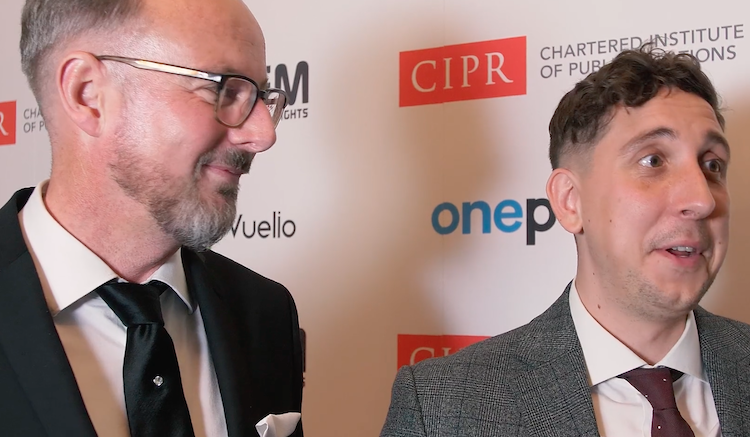
With over 10,000 members, the CIPR (Chartered Institute of Public Relations) is the UK’s chartered PR body and sets the standards and benchmarks for professional and ethical conduct. Their members are bound by a code of conduct which they commit to annually.
The CIPR ensure that the industry behaves honestly, fairly and respectably. Nominations for these awards close earlier in the year than most, with the CIPR awards being announced in the summer. As you would expect from a chartered institute, nominations go through a rigorous two-stage process where they are judged by a panel of over 60 experienced PR professionals.
Winning the approval of the panel is no mean feat. But it’s well worth the credibility boost if you do.
Application information: awards.cipr.co.uk
The Drum PR Awards
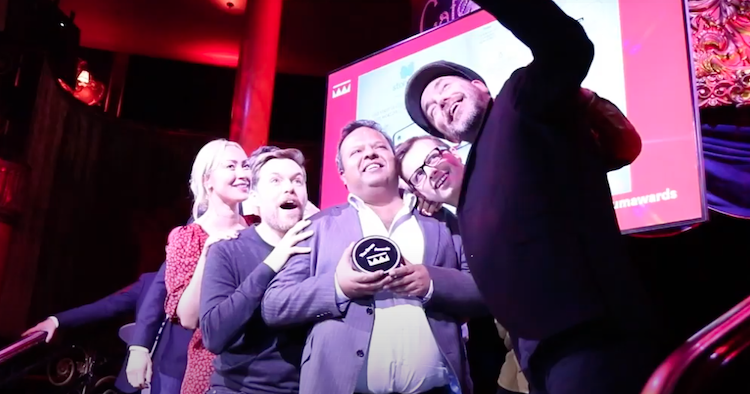
As mentioned above, The Drum is one of the world’s biggest publications for the marcomms industry. They feature specific PR awards in their wider awards ceremonies and also have a specific set of PR awards. Getting a Drum award is the PR equivalent of winning a medal at the Olympics. It’s the ultimate badge of excellence.
An international competition, past winners have tended to be huge multinational brands with eye-wateringly large PR budgets, like Virgin Atlantic or McDonald’s. But if you have a world-class PR campaign, don’t let that put you off applying.
Application details: www.thedrum.com/awards
SABRE PR Awards

The final awards on the list are the SABRE Awards. SABRE are global awards with each continent hosting their own. SABRE award winners are top of the PR crop. Like the Drum Awards, the winners tend to be huge multinationals.
That being said, that doesn’t mean smaller brands can’t enter, but it’s worth noting that the bar is set incredibly high. It would be worth entering just to attend the ceremony and mix with those at the top of their profession.
Application details: sabre.provokemedia.com
Other PR Awards
There are hundreds of smaller, individual PR awards that make up part of a bigger awards ceremony. You’ll find a PR-specific award in pretty much every marcomms industry event.
However, it’s only the select few mentioned above that have real significance and will add true value to your business.
So are PR Awards just about PR Campaigns?
There are numerous categories you can enter. It’s not all about the campaigns themselves (although they are significant.) Every award body has nuanced categories, but they are broadly broken down into three key areas:
Campaign-based awards
The bulk of PR awards are based on the campaigns that have run. These are further broken down into smaller categories. Some are awarded by sector (finance, healthcare, B2B etc.). Others are broken down by region, budget, or by techniques/type such as social media, use of influencers or positive press generated.
People-based awards
These awards go to individuals or teams, for specific outstanding achievements. An individual could be nominated for their work in the area of inclusion and diversity, for example. Or a team could win an award based on their combined success in a specific area. These are for both in-house and agency people.
There are even specific awards for PR internships. The PCRA awards prizes for the best intern, best apprenticeship employer and best apprentice.
Niche awards
All awards have their niches, for example, ‘best use of a small budget under £30,000’ or ‘best coronavirus crisis management’. If your achievement ticks some specific boxes, awards like these could be a good option to enter, as the pool of competitors will be smaller. You’ll also find that the bigger or more powerful agencies will focus on the larger awards.
What do you need to do to enter?
While all entries are slightly different, they all have a similar basic process. First, you’ll need to work out which category you have a chance of winning. Be realistic. There’s no point going through the process just to say you’ve entered.
Some people take a scattergun approach to PR awards and apply for everything, hoping they’ll win something. But this isn’t going to get you anywhere. Judges will focus on the quality of your submission rather than the quantity. Multiple entries of a lesser quality will cost you precious time without reaping the rewards.
Once you’ve found the right award, you’ll need to apply online. Each awarding body has their own website where you’ll find a form or an email address to apply to.
It goes without saying, you’ll need to supply lots of supporting evidence. You need to showcase exactly why you deserve to win the award. And remember, the judges will do their own research. Any exaggerations in your entry will be quickly spotted!
It’s also worth mentioning that in most cases you’ll need to pay an entry fee. The awards companies have to make a profit to make it worth their while. This is another reason to only enter the awards you think you have a shot at winning.
The next step is usually a shortlist where a selection of the entries will be taken to the next round. If you make it on to the shortlist, expect the judges to scrutinise your entry in detail. Some panels will invite you to meet the judges, while others may ask for more supporting evidence. Just make sure you can back up the claims you make in your entry. In most cases, there’s no point just trying to win on an idea alone; you’ll need to back it up with stats and figures.
The bottom line
A winning entry is one that combines originality with tangible real-world achievements. If you believe you’re on to a winner, go for it.
The benefits are endless. It can add credibility to your brand, create loyal fans, generate media coverage and improve your bottom line.






